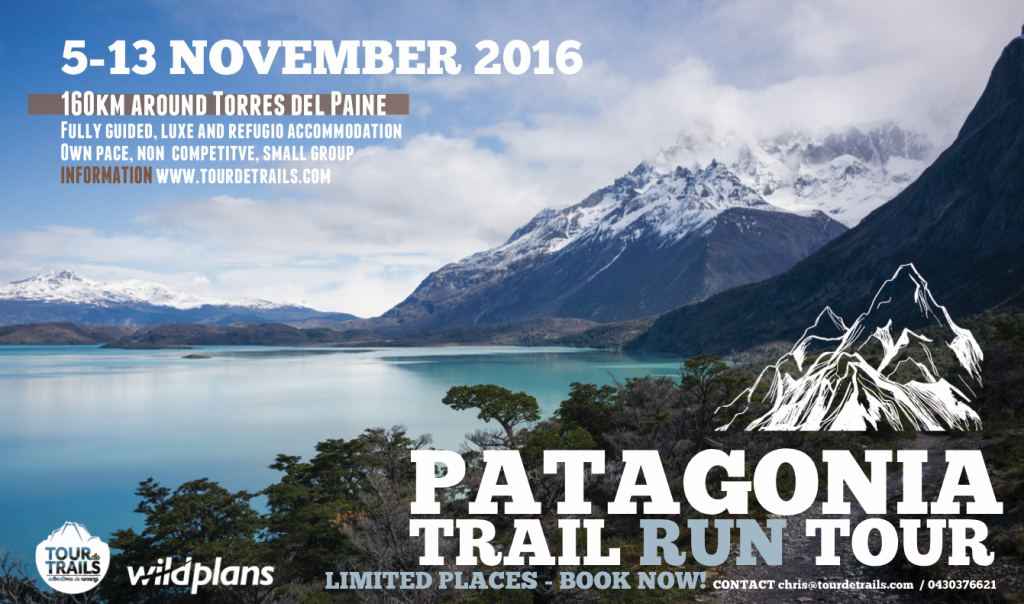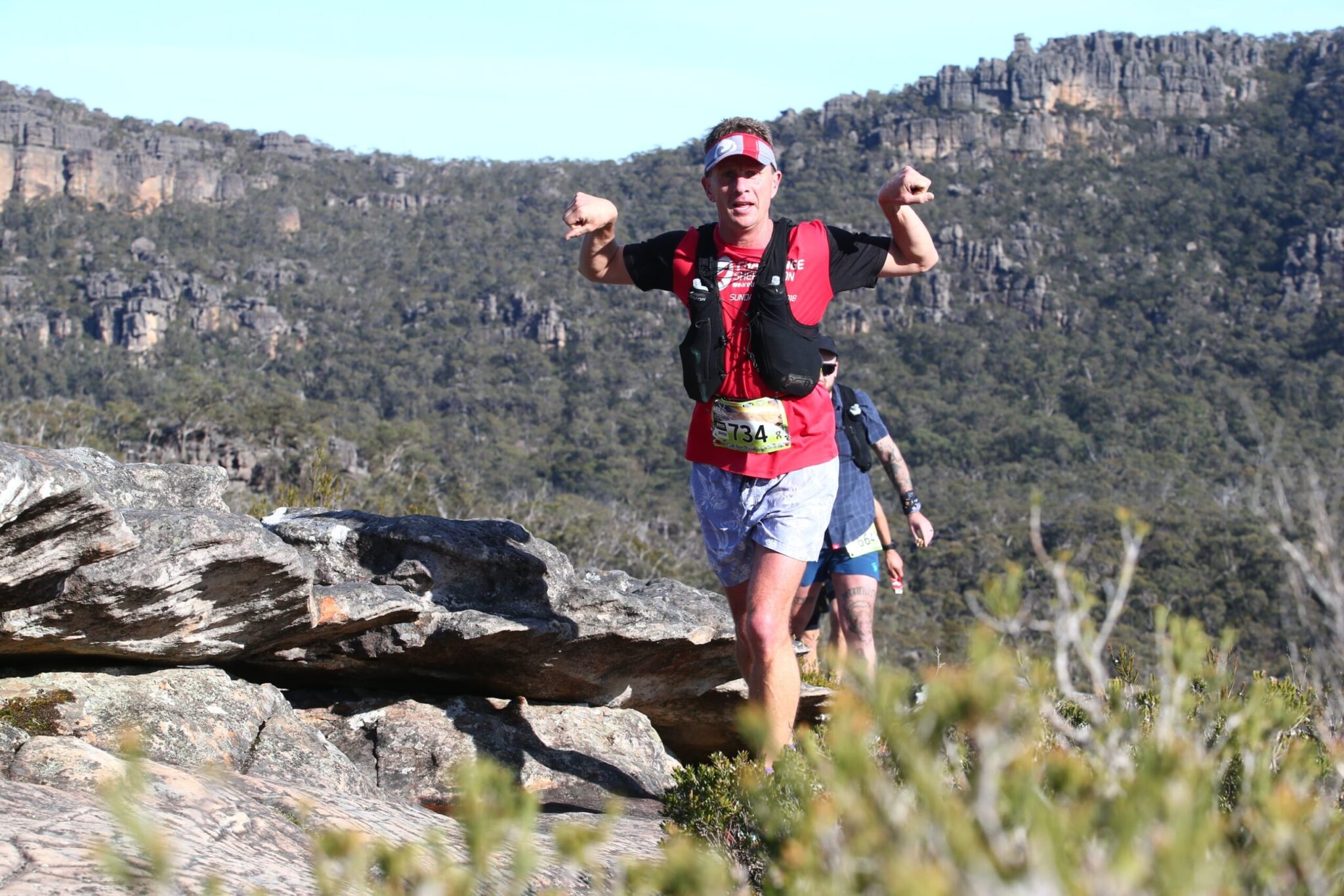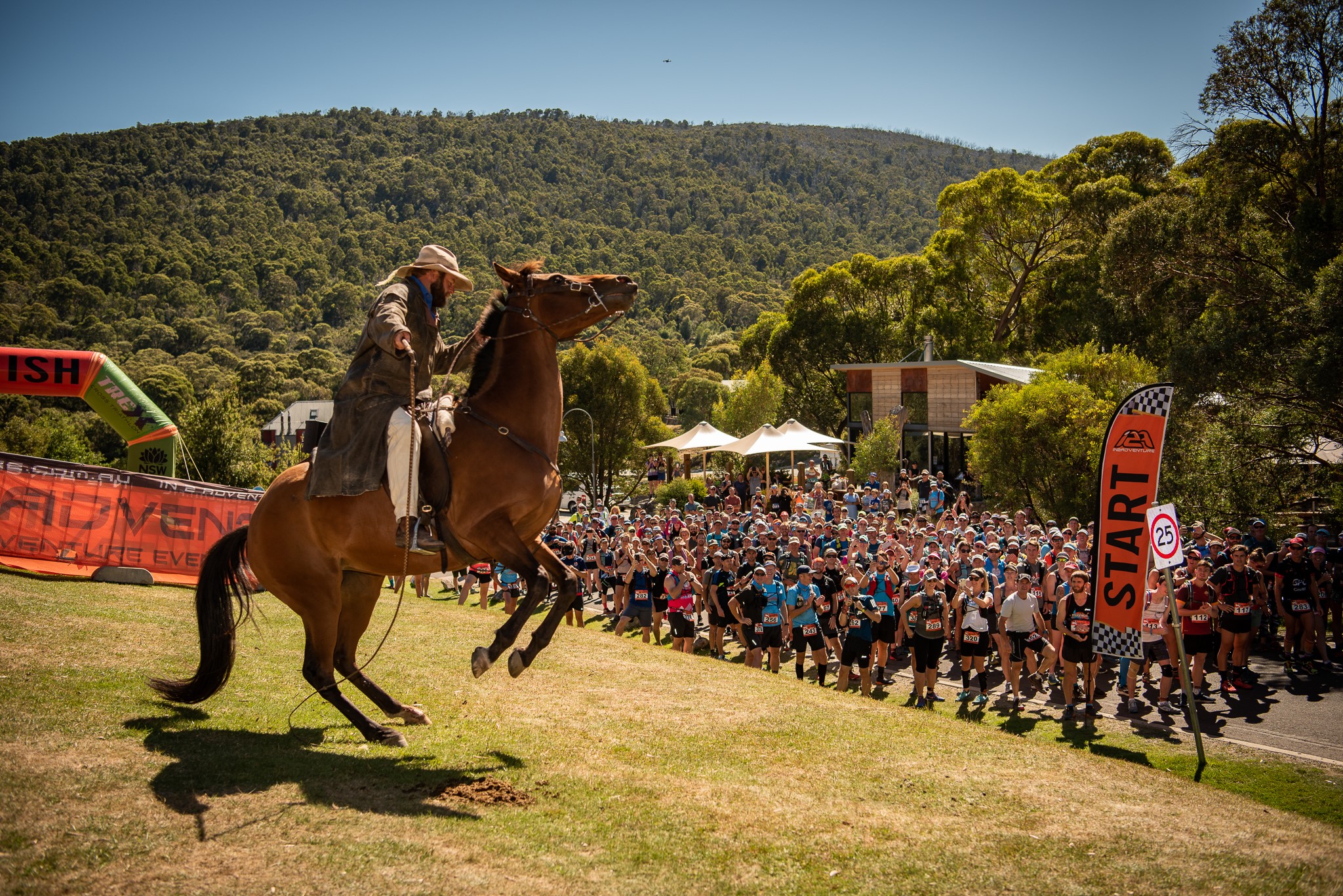While plenty of attention is garnered by the front runners, we reckon the more moving and inspirational tales of ultra running are found further back in the pack, as with the likes of Brett Sammut whose story from 2015 ran in Edition #17 of Trail Run Mag. With Ultra Trail Australia happening this weekend, we thought it worth a look back at Brett’s experience in the Blue Mountains.
WORDS: Chris Ord
When life becomes too much, some run away to oblivion. Others, like Brett Sammut, reach the precipice but use running as a way to step back and rediscover a reason to live, and then some.
But what happens when the spectre of failure looms large on the trail to redemption, as Brett faced attempting his first UTA (then The North Face 100)?
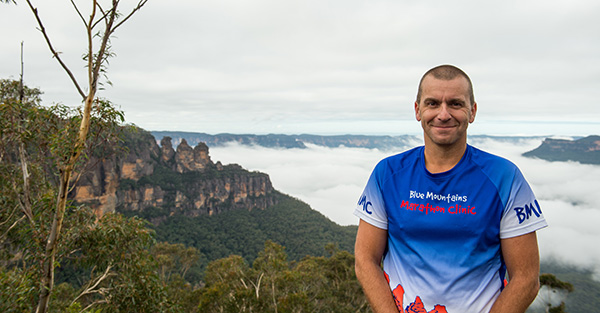
© Lyndon Marceau / marceauphotography
The night was a darker pitch than any before. A suffocating weight of blackness tunnelled vision down to transient sweeps of light cast by passing cars. A two-hour walk of wallowing pain echoed as barely ten minutes, but every second of it was unbearable, like seventeen years of pain focused through a magnifying glass; beams of a black sun searing into his mind, charring it like the sun burns a dried autumn leaf.
In that moment, there was a clear, definite and imminent end to this phenomenal feat of endurance for 43-year-old New South Welshman, Brett Sammut.
He was about to quit in the most final way he could imagine.
From his perch on a gutter leading nowhere, on the fringe of a regional city the ex-policeman had served and loved and hated, Brett was preparing to throw himself in front of the next speeding truck that happened along.
His enduring to that point in his life was of a kind more miserable, intense and soul-shattering than any ultra runner – even at their lowest ebb – could ever imagine. Unless, that is, an ultra runner out there has ever been moments from throwing themselves in front of a speeding B-Double, Brett’s preferred method of ending his inner turmoil.
It wasn’t the first time Brett had tried to take his life. A policeman for 17 years, Brett was used to staking out dark corners on the hunt for people who wish and inflict harm on society. He was used to long chases. Long hours. Long nights. Like anyone exposed for an extended period to the raw pain of other people’s lives, Brett suffered. The things he saw, the things he had to do, to deal with while in the Force wore him down to the point where he joined those he usually chased into the gutter, albeit in a more literal sense.
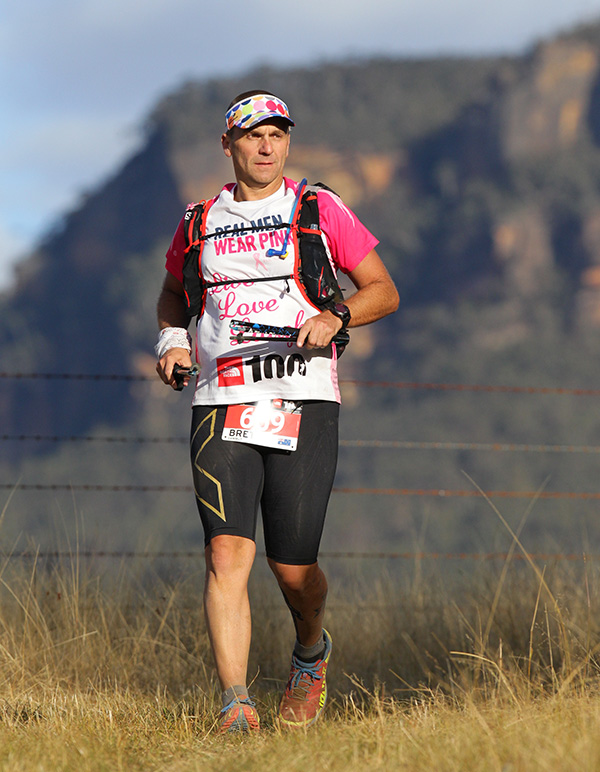
The North Face 100 2015 // Aurora Images
“I was an overweight copper,” says Brett whose peak was around 118kg. “I left the police with diagnosed depression and anxiety. I felt worthless. I knew why I’d become depressed: it was a combination of seeing things that people shouldn’t see and doing things people shouldn’t have to do.”
A beer drinking culture within the force where colleagues drank to forget the worst shifts didn’t help.
“I didn’t drink beer so I was a bit of an outcast, but also, I had no real release valve like they did. I’d go home, not wanting to talk to my wife or daughters about the things I witnessed. I just bottled it up.
“One day my bucket spilled and I had a bad (mental) crash. That’s when I first tried taking my own life. I’m just grateful that the truck never came. I would have missed out on so much. It was a wake up call I needed.”
The following day, in a cloud of confusion, Brett sought a doctor and got the help he desperately needed. The solution, however, was a bitter pill to swallow.
“Medication,” says Brett. “I hated taking that medication.”
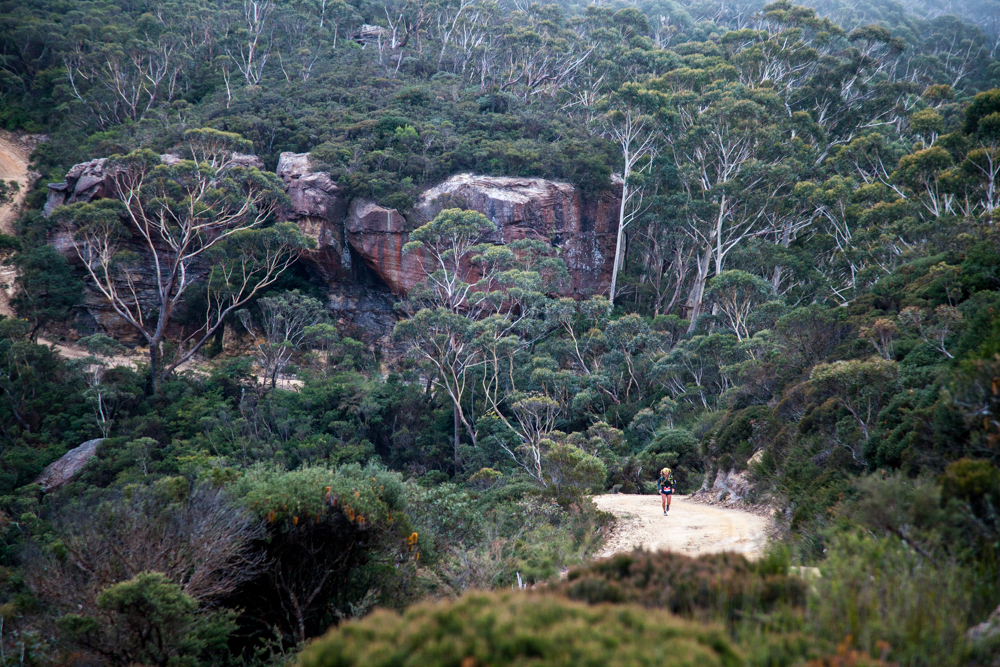
IMAGE: Chris Ord / Adventure Types
“To me, it was a sign of a failure. I know it was needed to help me. But I resented taking the medication and to get up every morning and take a 10-milligram pill was hard. The the first few weeks I flushed them all down the drain.”
It wasn’t long before Brett was forced to spend time in a psychiatric hospital.
“That was devastating,” he recalls. “One moment I am a policeman, with the power to take someone’s life or liberty in just circumstances, the next minute I’m locked in a room for three months, my own liberty taken, with no power to do anything.”
Brett had hit his rock bottom.
“I got diagnosed with obsessive compulsive disorder, a few anxiety disorders and suicidal tendencies. I also had a diagnosis of a perfectionist disorder.”
Before being hospitalised, Brett had taken to running in order to lose weight. “But I read somewhere that running could also help ease reliance on medication, so I had thoughts of using that as part of my therapy.”
With some skepticism, Brett’s doctor prescribed he go for a run, on an assumption he would fail and they could get back to the medicated course of action.
“He was trying to expose me to a ‘safe’ failure, I guess, as part of my treatment. But he didn’t want me to really use running as part of treatment.”
Despite no training, Brett travelled to run the Canberra Half Marathon, his first.
“I loved it. It wasn’t necessarily what my doctor wanted – me to love the running – but I did.”

© Lyndon Marceau / marceauphotography
It’s not unusual to find perfectionists or indeed obsessive compulsives, out on road or trail, monitoring to an inch of their lives time splits, calorie counts, and race pace. Indeed, sometimes for those with personalities locked like a homing missile on the intricacies of measurement in running, the sport can be harmful. Had running just become another mask for the pain, an addiction akin to his beer drinking colleagues back in the force, albeit arguably healthier to all appearances?
“To a degree, yes, but really for me it was about the participation medal,” says Brett. “It was about the achievement, the sense of completing something, more so than being good at something.”
“When I stopped being a police officer I became a nothing,” he explains. “That was how I identified, even though of course I was a father, a son, and a husband. But so much of your being is wrapped up in what you do when you are a policeman. When it is ripped away, you are at a loss. For me, rightly or wrongly, there was no real reason to live. There was no reward. To live, I still needed the thing that was in fact killing me.”
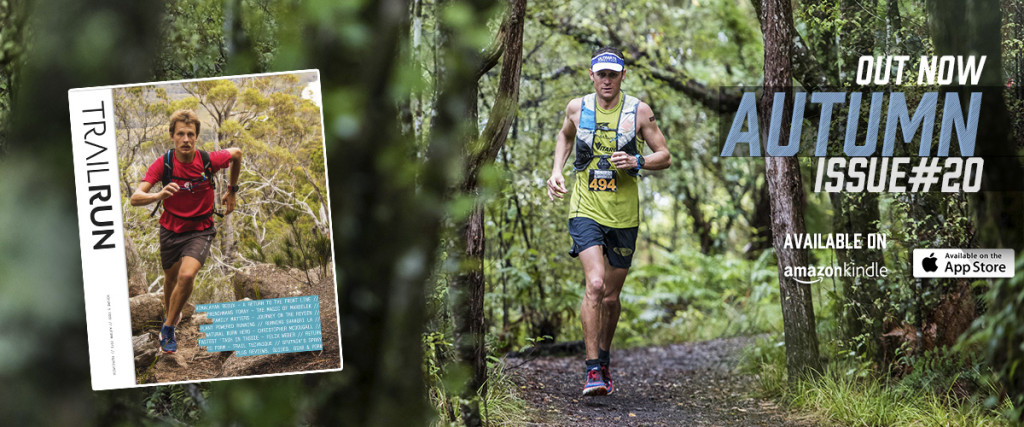
DOWNLOAD Trail Run Mag for FREE at www.trailrunmag.com/magazines
While running and the medals on offer were no doubt a safer substitute for his achievements as a police officer, he admits to still using running as a way to escape problems, rather than face them.
“Leaving town was the reason I started running in a lot of events. In the first year after getting out of the psychiatric ward, I raced twelve half marathons. It was getting out of Orange. Getting out of town. Leaving everything behind me. I could actually relax doing that. And then driving back home I had that little medal, which to me is someone saying ‘you did well’ which you don’t get in hospital.”
Brett’s journey to the trail and ultimately his first attempt at this year’s The North Face 100, went via some triathlons and road runs, before he signed up to a Running Wild 6-Hour event in the Blue Mountains. The fit was instant, Brett describing how there was something more alluring, more medicating, more comfortable about the trail running scene that plays an important part in his ongoing recovery.
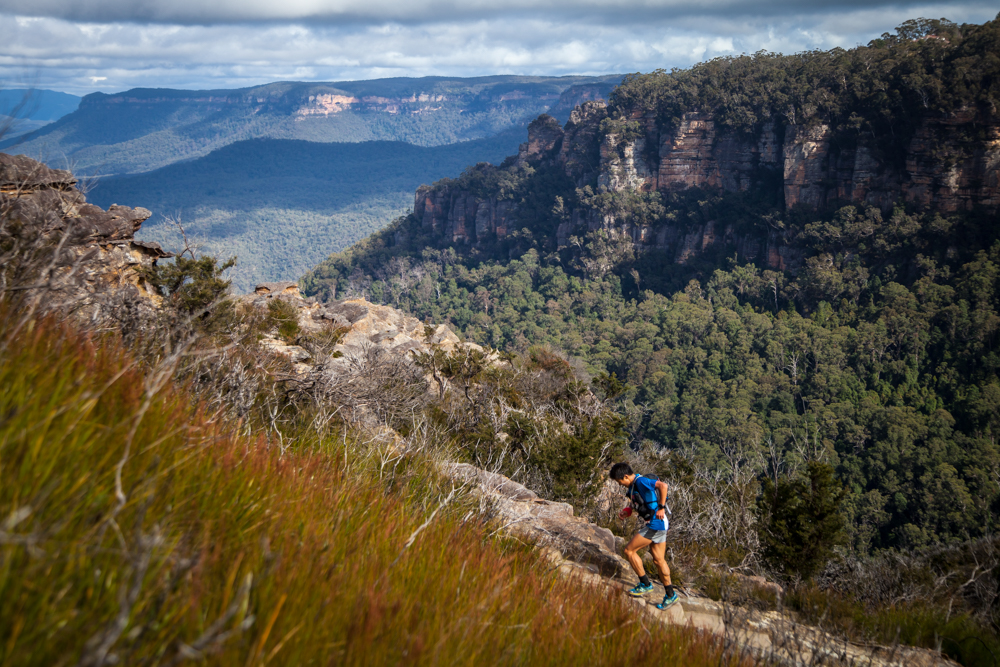
IMAGE: Chris Ord / Adventure Types
“Trail running it seems like a little family. I was accepted straight away. And not as Brett the depressive, Brett the suicidal guy, or Brett the ex-copper. I was just Brett the guy who could run. Like everyone else there.
“There was a sense of not only acceptance, but also community, and I think that is unique to trail running as compared to the road running scene where you don’t know anyone, and no-one wants to know you.”
The friends Brett gained from running quickly replaced those from his policing days who had quickly fallen away when he became ill.
“There is still a lot of stigma attached to mental illness within the police force,” says Brett. “But I’m happy to say that the trail running friends I have gained are a much better, more accepting bunch.”
The environment he was beginning to immerse himself in also played their part, believes Brett.
“It can be so peaceful on trail. I think that helps clear the mind for people like me. There’s no cars, traffic, noise, no clutter…”
Brett firmly believes running and treating depression go hand in hand.
“Trail running in particular amplifies that level of recovery process. My medication levels have dropped the last six months, and I attribute that to the trail. Even when I was running road, I still required my full dose… there’s crowds, cars, people hating on you for being a runner – it remains a place of heightened anxiety. There’s none of that in the bush – just birds and space. Even when you trip over you can laugh it off – you’re by yourself, there’s no one else to blame – and you get back up and run. There’s something about the environmental aspect of the trail that definitely lessens my anxiety, lessening my reliance on medication, which was the aim from the beginning.”
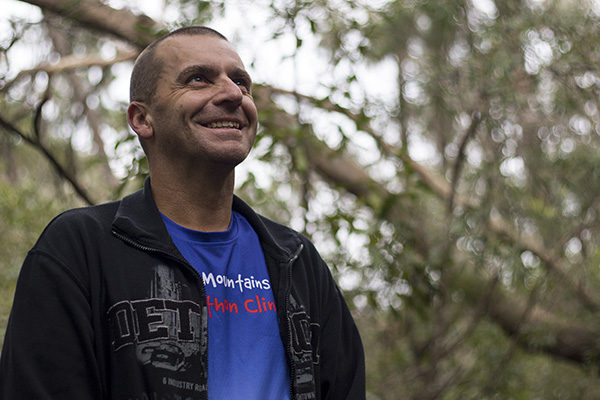
IMAGE: Chris Ord / Adventure Types
Fast forward through Brett falling in love with singletrack, and we’re standing in the crisp night as crowds mill atop the cliffs of Luera, in the Blue Mountains, filing in to collect their race packs place for tomorrow’s The North Face 100. For many, it will be the biggest challenge they have ever faced. The question that hangs heavy in the air anchoring the nervous chatter, is will they achieve it?
For Brett, that weight of expectation has extra gravity. What happens when a man battling mental illness, someone whose daily nemesis is the prospect of failure, faces something as tough as running 100km; what happens when he faces a race where the Did Not Finish rate is one in three?
While others are anxious about how their body will hold up, for Brett – having now been physically fit for two years – the spikes of anxiety are more about how his mind will hold up to the rigors of an ultra.
The question was answered at Checkpoint Three, but it wasn’t his head that caved in to the challenge. After 47km, it was his body. Three hours of being violently ill, vomiting, cramping and becoming dangerously dehydrated, Brett faced his inner demon and pulled the pin.
“My first thought was of letting down my family,” says Brett. “I thought about what I had sacrificed for the race, and more importantly what my wife and kids had sacrificed for me to race.”
Those thoughts alone would have cut deep for Brett, or for any family man. But what Brett hadn’t let on was that his wife, Francine, has terminal breast cancer, and he is her primary carer. Time, therefore, is of the essence, and both he and his wife had sacrificed a sizeable chunk of it for Brett to run in The North Face 100. Their family’s collective sacrifice in seeing less of their husband and father in a precious period of life, where death again threatened, was arguably much more of a black hole than your average ultra runner’s time vacuum.
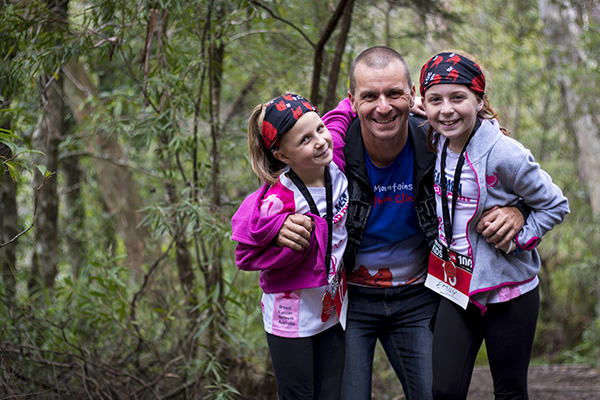
IMAGE: Chris Ord / Adventure Types
“There were tears when I met up with my family. They were waiting at checkpoint four with homemade signs and banners,” says Brett.They, of course, were a bedrock of support. Dad was safe. Husband was alive. All was well.
“That first hug from my wife was heavenly.”
“Quitting was hard. I felt like a failure again. My goal was to finish. I failed at that goal. But I look at it now – I am healthy, I didn’t get injured. A year ago I would have been in worse mental state by quitting. But I’m proud of what I did regardless – I ran further than I have ever run before.”
Determined to turn the situation into a positive, Brett remained on course to help fellow runners who were racing without support.
“The race was meant to be a chance for me to fight my personal demons and score a victory, but while I failed in this instance, I still saw it as a chance to help others to achieve their goals. So I spent the next few hours and into Sunday morning helping strangers to get through checkpoints and lifting their confidence in their ability to get the job done; to be able to keep moving and keep putting one foot in front of the other.”
“It was the best thing I could have done. I never realised how much joy it would give me, especially when it came to seeing the names of people I helped on the finishers list.”
“That’s what I take away, that to me running is not about times, placings, results or, now I have come to accept, even finishing. It is the chance to be a part of an amazing community and the feeling of belonging.”
A few years ago, Brett Sammut felt overwhelming reason to embrace death. On the trail he found reason enough to live. Trail running gave him strength enough to face failure when it visited 53km short of his long-imagined success. And it continues to give him 100 reasons to live: the 100 kilometres he intends to conquer in the Blue Mountains in the future.
“I’m still on a journey and I want to keep coming back to The North Face every year,” says Brett. “First of all to finish, and then keep getting better. It’s my reward that I will keep looking forward to, keep living for.”
Addendum: In 2016, Brett is returning to run the 50km.
(*And the 1 in 101 Reasons headline? Of course, his two girls and wife…his family).
Brett Sammut’s blog on his The North Face experience can be seen at https://brettsammut.wordpress.com
If you or someone you know is experiencing depression or mental health issues, contact:
- Life Line on 13 11 14 or www.lifeline.org.au
- Beyond Blue www.beyondblue.org.au
- Black Dog Institute www.blackdoginstitute.org.au

